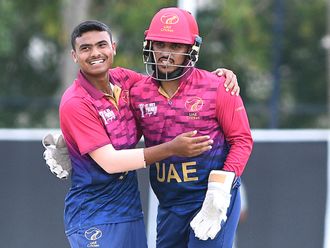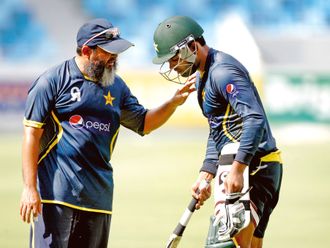Dubai: Top officials who govern the Board of Control for Cricket in India (BCCI) are in trouble. The Supreme Court on Tuesday dismissed a review petition filed by BCCI in connection with its verdict to implement the recommendations of the Justice R.M. Lodha panel. The wide range of suggestions to the BCCI from the panel include a bar on ministers and civil servants and those above 70 from becoming its members; one state one vote; and a cooling-off period for any administrator.
The BCCI has been reluctant to implement the recommendations resulting in the Court deciding to consider imposing monetary sanctions on the board until the board implements the reforms mooted by the panel. During the course of the hearing, however, it asked the BCCI to give a timeframe to implement all the Lodha Committee recommendations.
Anurag Thakur, President, BCCI, had informed the court that the state associations are confused and need more time. “You need 3/4th majority to adopt these recommendations. We have done our duty to go back to the state associations and they have to take a call on that. If you don’t have 3/4th majority, you cannot adopt these recommendations,” said Thakur.
Advocate Gopal Subramaniam had asked the apex court to appoint an administrator or ask the Lodha Committee to do so. The BCCI had alleged in the Supreme Court that the Justice RM Lodha committee was trying to “run cricket” in the country by giving directions regarding match schedules, including the cash-rich Indian Premier League (IPL), which was beyond its jurisdiction.
The country’s top court had given BCCI between four and six months to implement the recommendations and appointed former chief justice of India RM Lodha to oversee the transition. The dismissal of the review petition is a huge setback for the BCCI, which is trying to be cheeky in the face of growing pressure to accept and implement the reforms suggested by the Lodha Committee.
At the Special General body Meeting held on October 1, the BCCI agreed to implement important recommendations, but key reforms like the age restriction of 70 years for board officials, the tenure cap of nine years with cooling-off periods, and the one-state-one-vote policy, among others were missing from the list.
So on October 3, the Lodha Committee asked two Indian banks — Yes Bank and Bank of Maharashtra — not to disburse funds from the BCCI accounts to the state associations with regard to two financial decisions taken at the board’s emergent working committee meeting on September 30.
Three days later the Supreme Court asked the BCCI to submit an undertaking that it will “unconditionally” implement all the court-approved recommendations of the Lodha Committee by October 7. The court even indicated that if the board fails to do so, its office-bearers could be replaced with a panel of administrators. There is speculation that the panel of administrators may be former reputed cricketers like Sunil Gavaskar, Sourav Ganguly and V.V.S. Laxman.
The panel also wanted the selection committee to be trimmed to three members, but the board felt this was insufficient for India, considering its vast area where around 900 matches are played annually.
If and when the recommendations are implemented, many including the president of the BCCI Thakur, and many others, could be on their way out of the board. Thakur is a Bharatiya Janata Party (BJP) leader while former BCCI chief Sharad Pawar is the founder of the Nationalist Congress Party.












